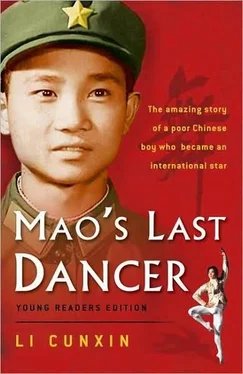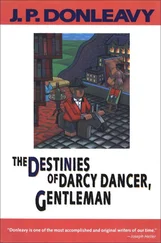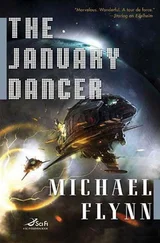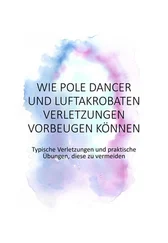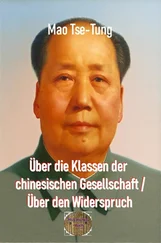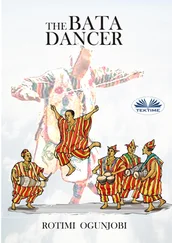I had to keep the ink on my face and neck for two whole days. I refused to go outside. My brothers just kept laughing at me. Luckily I hadn't started going to school yet, so I didn't have to face teachers and classmates as well. My swelling disappeared within two days, but still I wonder if the swelling would have gone away anyway, without the embarrassing made-up face.
Another childhood ordeal for us was warts, which we called "monkeys". An elderly man in our village, who we called the "Wuho man", told my niang that the best way to eradicate monkeys was to wet them on the grain grinder on the day of rain. The Wuho man was in his late seventies. He was a funny old man with a good sense of humour. He had poor eyesight, rotten teeth and a long silver beard. He always had a palm-leaf fan in his hand and smoked an ancient pipe. His walk was rather stylish, with his hands folded behind his back, and he coughed and spat a lot.
He told our niang that for this treatment to work we had to keep our mouths shut on the way to and from the grinder.
So, just after rain one day, my niang said to me, "Take Jing Tring to the grinder and wet your monkeys with the water from it."
"But you promised me that I could play with Sien Yu after the rain stopped!" I replied. I didn't want to go. I thought it would be a waste of time. And I hated always having to look after Jing Tring.
"You can't go and play with Sien Yu unless you take Jing Tring to the grinder first," she threatened.
I so eagerly wanted to play with my friend that reluctantly I agreed.
Before we left for our five-minute walk to the grain grinder, our niang reminded us, "Remember, don't talk to anyone! This treatment won't work if you utter a single word on the way there and back."
I was very annoyed. I felt it would be an easy task for me not to speak but it would be hard for Jing Tring. He was still so little. "I'll kill you if you open your mouth, do you understand?" I said to him just before we stepped out our gate. He just nodded. I took his hand and embarked on this special mission.
The first couple of minutes we managed to keep our mouths shut because we didn't meet anyone. But once we'd gone about halfway, we saw Sien Yu's mother coming towards us. "Ni hao, liu su. Ni hao, qi su," she said politely, acknowledging us as sixth and seventh uncles. "Sien Yu is waiting for you at home. Are you on your way there?" she asked.
"Ni hao, zhi xi fu." I returned her acknowledgement, greeting her as my nephew's wife. "I'll be coming soon!"
I couldn't believe it. I couldn't believe I was the stupid one, not Jing Tring. We had to go back and start our journey all over again.
Jing Tring was very unhappy and didn't want to cooperate. He kept saying, "I'm tired! I'm tired! I'm too tired to walk!"
"If you don't go," I threatened him, "your monkeys will spread all over your arms, your body, your face and maybe even in your eyes!"
"I don't want to go again! I can't!" he said.
I was desperate by this time. I didn't want to miss out on playing with Sien Yu. "Tell you what, I'll take you with me to Sien Yu's house if you finish this task with me." Jing Tring always wanted to do exactly what I did.
"You promise?" he asked excitedly.
"Yes, I promise," I replied.
"You dare to spit on it?" he asked again.
Annoyed, I spat on the ground and stamped my foot on it so that if the promise wasn't kept it would bring me unthinkable bad luck.
We went back home and started our journey again. Just as I thought things were going smoothly, we saw Sien Yu coming towards us, excitedly shouting, "What's taken you so long? I was on my way to your house to get you."
Just as I put my finger to my mouth to tell him to keep quiet, Jing Tring shouted happily, "My sixth brother promised me that I can play with you after our secret mission!" We had failed on our second try, and the old Wuho man had said that we were only allowed to try this journey three times in a single day. It was just like Jing Tring to ruin everything, I thought.
This time my little brother adamantly refused to walk. Even my promise of taking him to Sien Yu's house didn't work. "I want to stay home, I want to stay home!" he screamed.
"You children, the only thing you know how to do well is eat!" our niang said to us when we arrived back home for the second time. "Don't tell me you can't even keep your mouths shut for a few minutes."
This time, out of desperation, I carried my little brother on my back. "Shut your eyes. Close your mouth. If I hear a single sound from you, I will throw you into the well and you can spend the rest of your life with the frogs!" That scared him so much that he did as he was told. This time we completed our task, and a month later our warts had completely disappeared.
• • •
Despite our hardships, however, there were occasional joys too in our childhood. The one time of the year that we all looked forward to, the one time when we would be guaranteed wonderful food, was the Chinese New Year.
Our niang had to make and steam many bread rolls for the Chinese New Year, as gifts for our relatives. She made them in the shape offish and peaches, representing peace and prosperity, and gold bars representing wealth. Making the bread was time-consuming. The bread rolls would split if the dough had not been kneaded perfectly. She would be too embarrassed to take the split ones to our relatives, so we would keep those for ourselves. I always wished for more split ones, but she was such a perfectionist there would be very few of those and she rarely had sufficient flour to make enough bread for the gifts, let alone for us. During the holiday season we often had corn bread, second best to wheat bread, and it was such a treat.
Before dark on New Year's Eve, my dia and my fourth uncle would take me and my brothers to my ancestors' graveyard. We took bottles of water, representing food and wine, and stacks of yellowish rice paper stamped with the shape of old gold coins, which symbolised spending money. We took many bunches of incense, representing gold bars, and carried paper lanterns. All the children had pockets full of firecrackers. We spread the rice papers and stuck the incense on top of each grave. After we lit the paper money and the incense, we would kneel in front of each tomb and kowtow three times, calling out each ancestors' name, following a strict order, starting with the eldest of us and ending with the youngest.
"Dia, how can the dead people hear us if they are dead?" I asked.
"They know," he replied with his usual brevity.
Just before we left the graveyard to go home for our special dinner, we asked each of our ancestors to follow us home for the New Year's holiday. Our dia and our fourth uncle poured the bottles of water in front of each grave. On the way home we made sure our lanterns were brightly lit, so our ancestors' spirits could see clearly the road ahead. The children lit the firecrackers to wake the ancestors up. "Xing gan wo men hui jia. Lu bu ping. Man man zou." Our dia and our uncle would ask our ancestors to walk slowly and not trip on the uneven road. They talked to our ancestors as though they were still alive. My brothers and I thought this was funny but we had to take this occasion very seriously. Our ancestors' spirits lived on, like gods in a better world, because they had been kind people before they died. They had the power to help us, influence our well-being and our fate.
The meal that night was Niang's favourite to cook, because this was the only time she had enough good ingredients. She had saved all year long for this. Cold dishes came first: marinated jellyfish with soy sauce and a touch of sesame oil; seaweed jelly with smashed up garlic and soy sauce; marinated salty peanuts and pig-trotter jelly. Then hot dishes: fried whole flounder, and we always pushed the head to our dia's side of the plate. It was the most precious part of the fish to have. But our dia didn't touch it until our niang came to sit down, and then he would push it to her side of the plate. Then there was a steaming egg dish with green chives and rice noodles. There would have been at least ten eggs in it! It was so delicious that it just melted in my mouth. There were several vegetable dishes too and they all had small pieces of meat in them. The aroma of all this delicious food, mixed with the Chinese rice amp; wine, the incense and the pipe smoke, was unforgettable. It was so distinctively the Li family smell. And it only occurred once a year, on that special Chinese New Year's Eve.
Читать дальше
